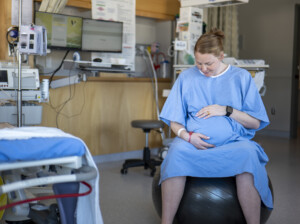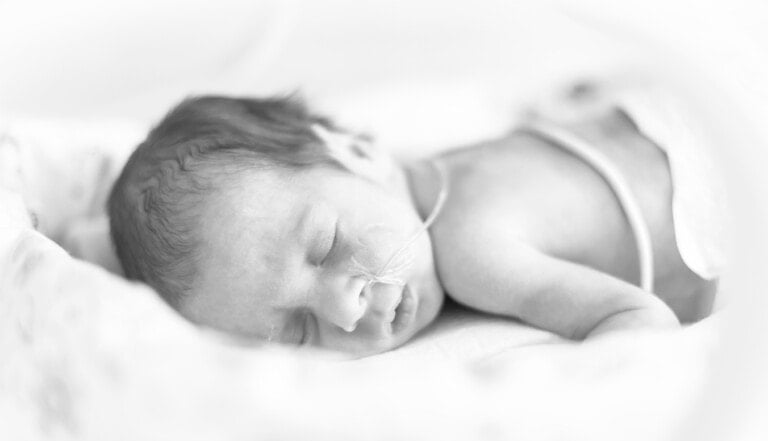It is no secret that labor can be a painful experience for many women. It is probably one of the better-known truths about birthing a child. While each woman will have a different experience with pain during labor (and it varies for each delivery!), most women agree there is some degree of pain.
Several factors affect a woman’s perception of pain, including anxiety, fatigue, and fear. Studies have shown that a woman’s mindset about the labor and delivery process, or pain in general, greatly affects their birthing experience.1 The truth is that pain is highly subjective. However, research implies that outside factors such as your mindset, preconceived ideas, and environment play a significant role in your labor pain.2,3,4
11 Things That Make Labor Pain Worse
Whether you’re giving birth in a hospital, a birthing center, or at home, some things make labor pain worse. Here are 11 things you need to avoid if you can:
1. Pitocin
The use of Pitocin to induce or speed up labor causes contractions that are longer, stronger, and closer together.5 Stronger, longer contractions = more pain! Plus, Pitocin doesn’t always speed up labor. It may make the labor experience longer and could lead to a cascade of other interventions (like a C-section).6
2. Dehydration
According to the American Pregnancy Association, pregnant women should aim to drink eight to 12 glasses of water per day. Not drinking enough water can cause muscle cramps and is more common in pregnancy.7 Dehydration may also trigger Braxton Hicks and may make already painful uterine contractions more severe.17
3. A Fearful Mindset
When you are fearful, your body tenses, your heart rate increases, your blood vessels constrict, and your breathing rate increases.8 This is the classic “fight or flight” response. Studies show that women with a fear of childbirth experience significantly more labor pain than those who don’t share that fear.9,18
4. Lying on Your Back
Lying on your back during labor puts a lot of pressure on your spine and can be the most painful position for labor. The supine position also forces you to work against gravity. Evidence suggests that laboring on your back may also increase the risk of fetal heart rate decelerations. The American College of Obstetrics and Gynecology no longer recommends a supine position as the “proscribed” laboring position.10
5. Not Having Trained Support
According to studies, having a birth doula or support person trained in pain-relieving techniques is immensely helpful.11 They can suggest natural pain-relieving methods and advise whether to choose pharmaceutical relief. Having a doula or midwife who can guide you through the process may make your labor less painful than it needs to be.19
6. A Stressful Environment
If your labor environment is causing you stress, your body will react by tensing up, making the pain worse. Your labor environment may be a more determining factor in how much pain you experience than any other factor.4 Make sure your birth environment is as calm and soothing as possible. Using a doula, listening to music, and practicing breathing can help.
7. Not Learning Natural Pain Relief Options
Many natural pain relief options are safe and effective. Make sure you are familiar with each of them, and include the ones you feel comfortable with within your birth plan. Examples include relaxation techniques, massage, a birthing ball, aromatherapy, acupressure and accupuncture.20
8. Fetal Malposition
When your baby is positioned improperly in your uterus or birth canal, it can cause very intense pain, especially back labor pain. Ensure you have a plan to help your baby get and stay positioned correctly (the Rebozo Sifting Method is preferred among many practitioners). It involves sifting your hips with quick, short movements from side to side or front to back.12
9. Not Breathing Correctly
It can be hard to remember to breathe properly when you’re in the middle of a painful contraction. However, learning effective breathing techniques for labor can help relax your body and relieve pain. Start practicing these techniques regularly so you’re familiar with them and can use them to feel calmer during labor.13
10. Tight Muscles
Seeing a chiropractor and regular massage during pregnancy will prepare your body to be relaxed and ready once labor starts. Additionally, getting a massage or a chiropractic adjustment during labor can help get and keep your baby in a good position. This also reduces the chances of a breech baby or shoulder dystocia.14
11. Not Listening to Music
Spend some time making a birth playlist with calm, relaxing music or whatever you’d prefer to listen to during labor! Studies have shown that women who listen to music during labor experience less pain than those who don’t.15 So, bring your iPhone and a Bluetooth speaker and pump up the volume!
At the end of the day, how a woman feels during her birthing experience and how much pain she experiences is a surprisingly complex relationship.16 More than likely, you will experience some degree of pain during your labor. However, there are things you can do and things you should avoid to make your birth experience as comfortable as possible. One of the most important things you can do is remember that you were created to do this and are fully capable of accomplishing it! You, Mama, have got this!













